
Exciting new series on “Voice, Body and Movement for Lawyers – How to connect with the jury and find Justice Through Dramatic Technique!”
Click here to find out more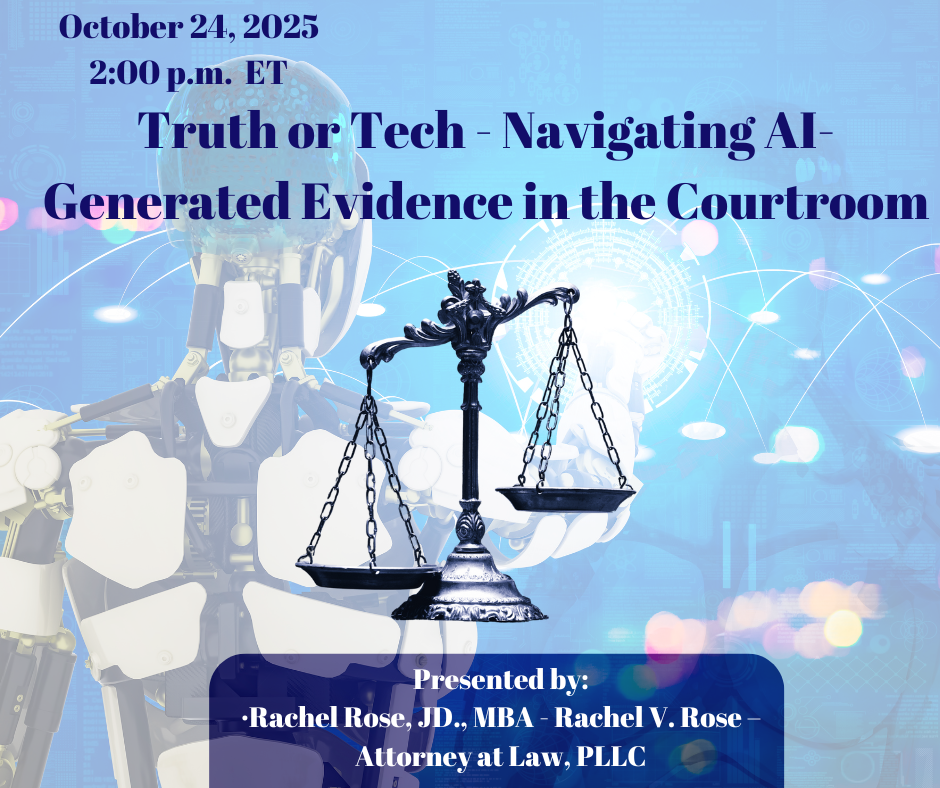
As technology advances, the manipulation of digital content has become more sophisticated and accessible than ever. It is now easier to generate or alter photos, videos, audio recordings, and even handwriting, raising critical questions about the integrity of evidence presented in legal proceedings. With the rise of AI-generated content, we must consider how these advancements can potentially compromise the reliability of evidence in court.
This presentation addresses the need for legal professionals to understand and respond to the challenges posed by AI manipulation. We will explore whether our existing authentication rules are sufficient to withstand the complexities introduced by AI-generated evidence.
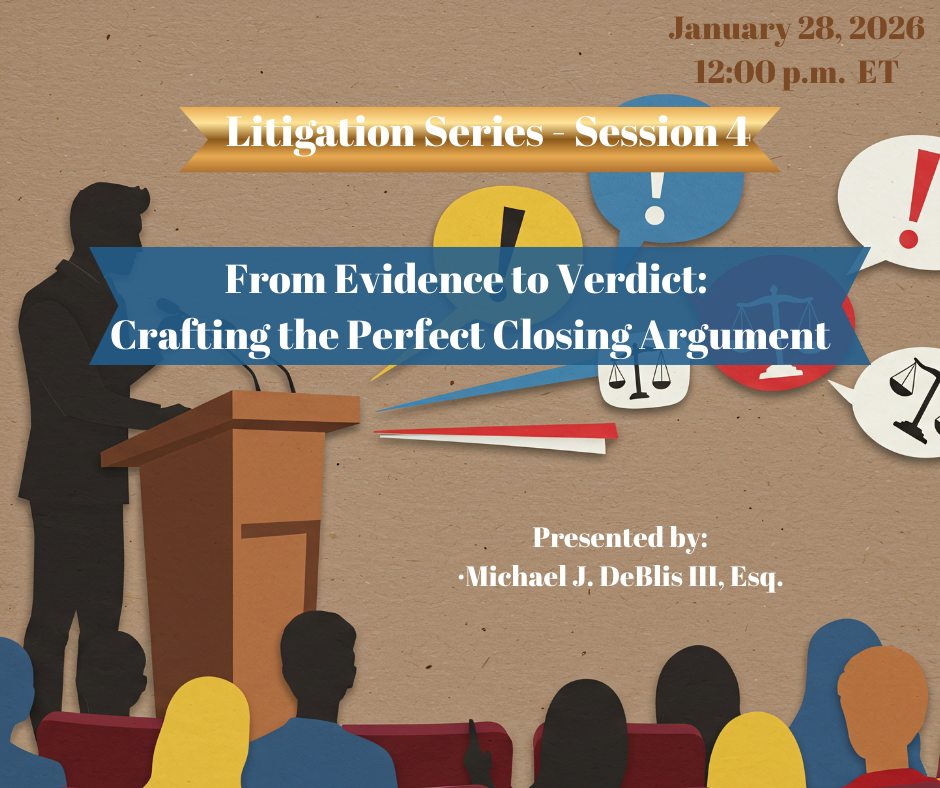
This program examines the strategy and artistry of closing argument, positioning it as a lawyer&rsqu...
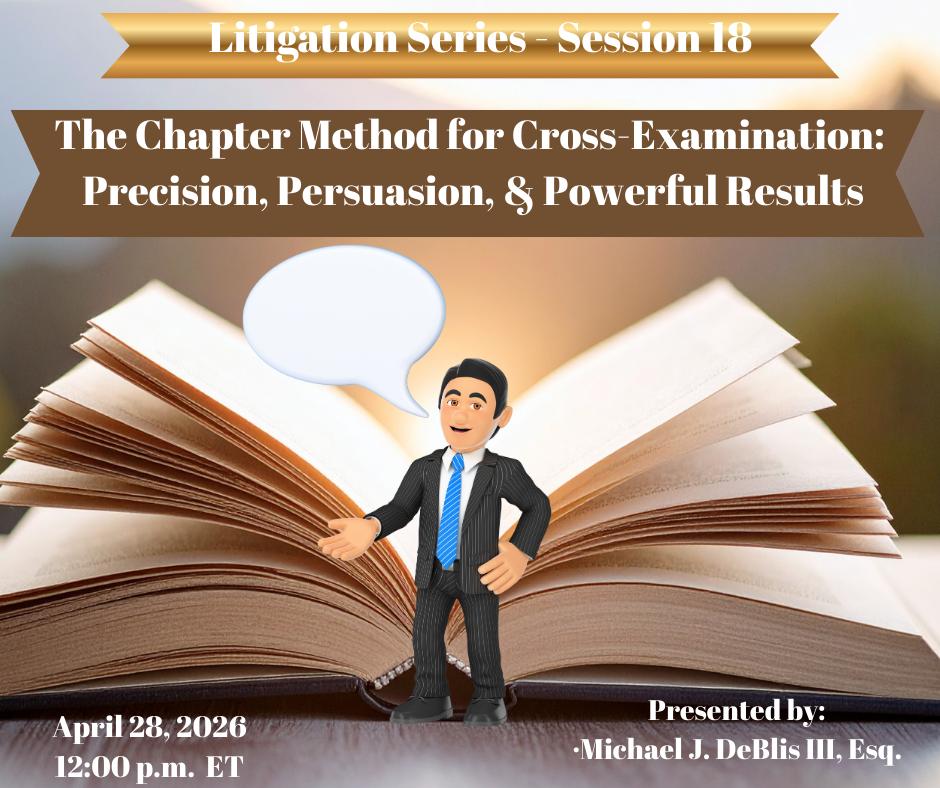
The “Chaptering Your Cross” program explains how dividing a cross?examination into clear...
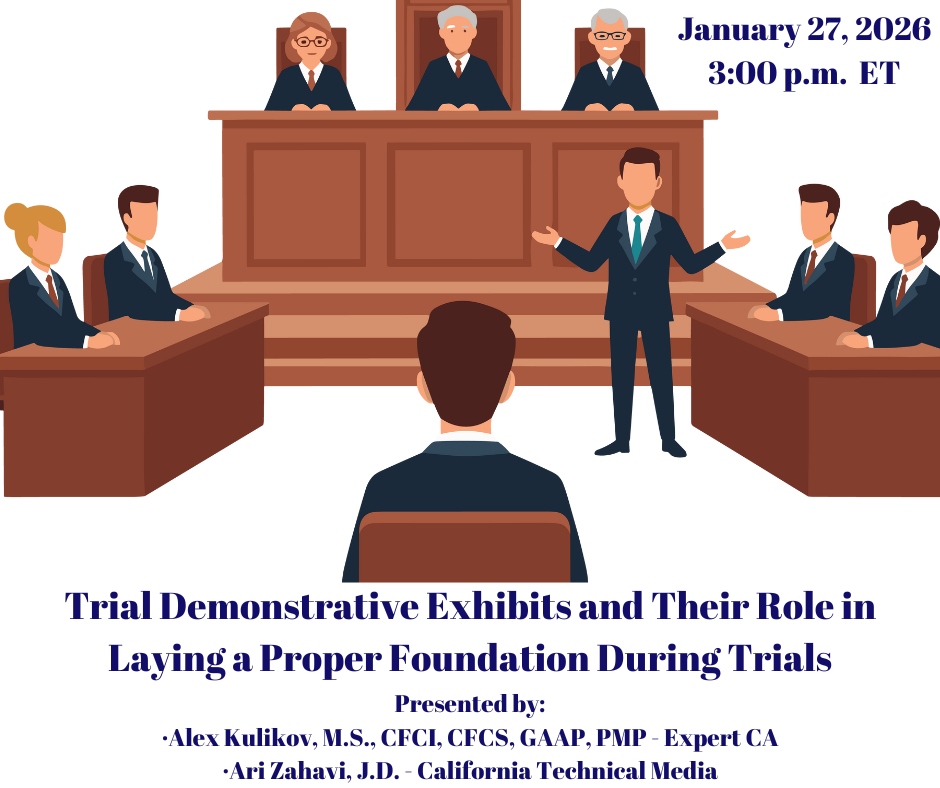
A litigator’s role is to shape how key decision-makers - judges, jurors, and opposing counsel ...
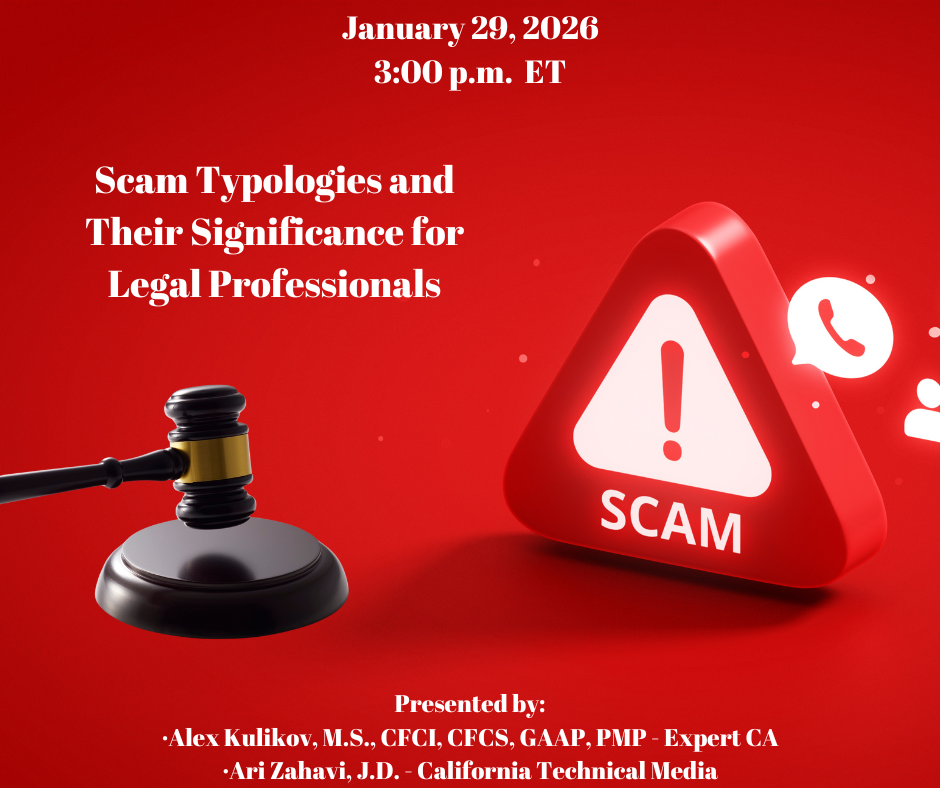
Scam typologies help legal professionals by providing a framework to understand, identify, and preve...
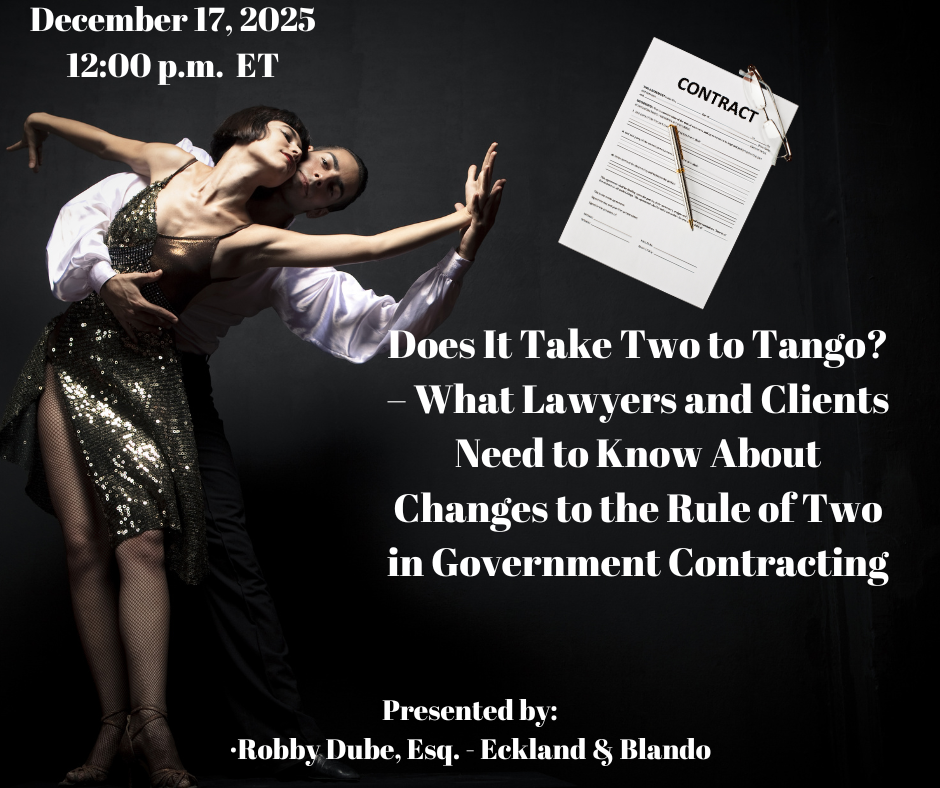
For decades, the Rule of Two in government contracting required federal agencies to set aside contra...
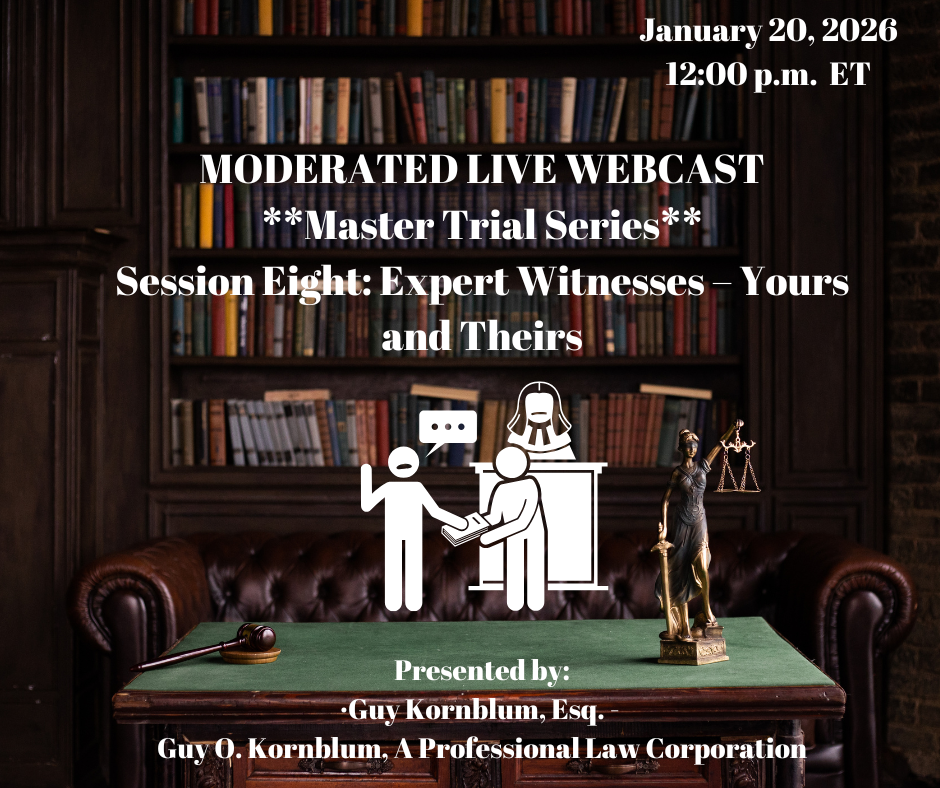
MODERATED-Session 8 of 10 -Mr. Kornblum, a highly experienced trial and litigation lawyer for over 5...
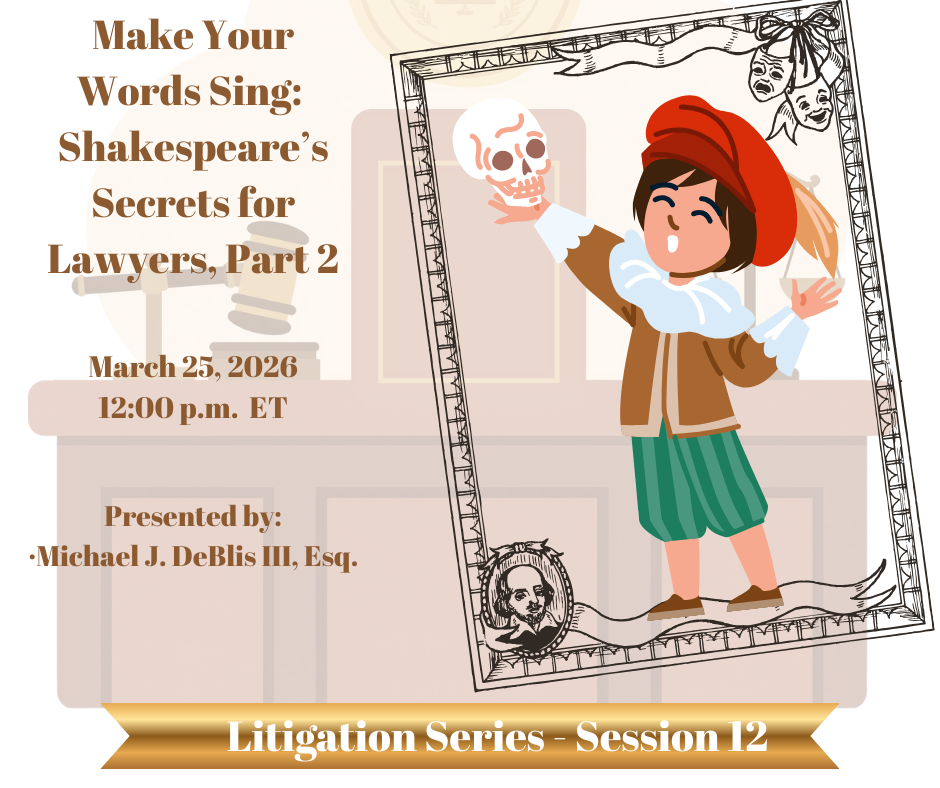
This companion program to Part 1 goes deeper into the rhetorical power of Shakespeare, emphasizing h...
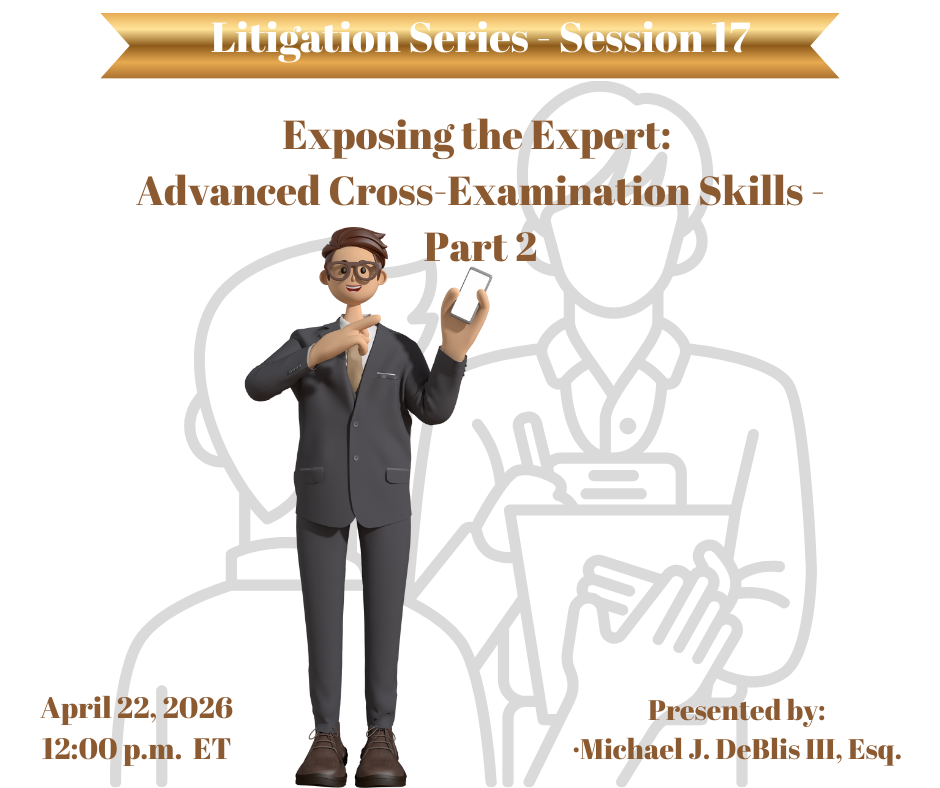
Part 2 - This program will continue the discussion from Part 1 focusing specifically on cross?examin...
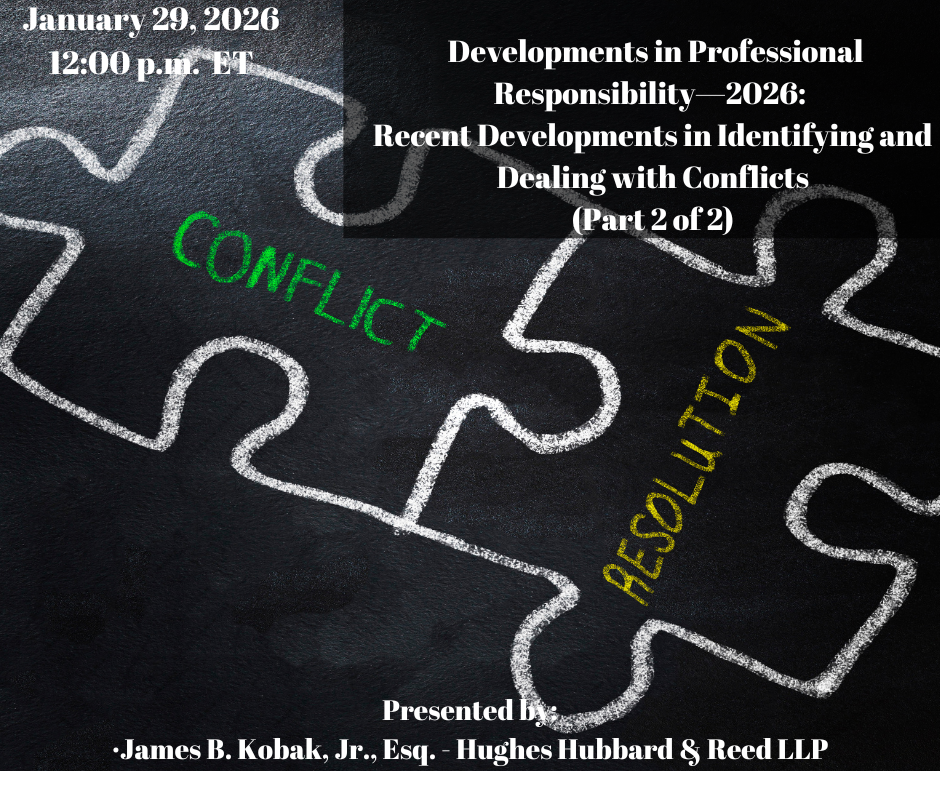
Part 2 of 2 - Lawyers at all levels of experience and even sophisticated law firms and general couns...

This one-hour program will look at the key differences in policies available in the marketplace, dif...